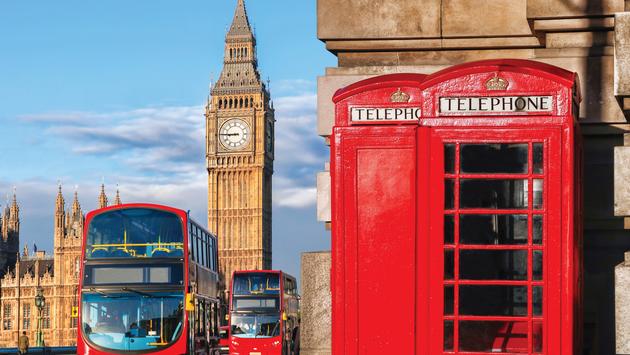- by foxnews
- 18 Mar 2025
UK Drops All Remaining Travel Restrictions, Despite Increase in COVID Infections
The U.K. announces the removal of all remaining COVID-related entry restrictions, including testing requirements for unvaccinated travelers and passenger locator forms.
- by travelpulse
- 17 Mar 2022
- in travel

The British government is set to drop all remaining travel restrictions in the United Kingdom (U.K.), despite an increase in case counts as people have begun socializing more following the discontinuation of nationwide COVID-19 surveillance programs.
According to The Guardian, government ministers approved the removal of pre- and post-travel testing requirements for unvaccinated international arrivals, as well as the need for foreigners to complete a U.K. Passenger Locator Form, from 4:00 a.m. on March 18. Fully vaccinated travelers are already welcome to visit the country without having to fulfill any testing requirements.
Additionally, the country's "quarantine hotels"-which have been held on standby, but not in use since December, when all foreign countries were cleared from the "red list"-will also be decommissioned at the end of March.
With the U.K.'s domestic restrictions already lifted, Conservative members of parliament and the aviation industry had pressured Transport Secretary Grant Shapps to rescind entry requirements before April arrives. Shapps said during today's announcement of the policy change that it will "mean greater freedom for travelers ahead of the Easter holidays".
The Transport Ministry has gone so far as to also drop the requirement that face masks be worn in airports from March 16. Mask-wearing continues to be encouraged by officials, but will no longer be mandatory. U.K. air carriers British Airways and Virgin Atlantic are reportedly planning to scrap onboard mask requirements aboard flights bound for destinations that don't compel passengers to wear masks on planes.
British Airways and Virgin Atlantic said onboard mask requirements would continue, at this point, on many international routes-including flights to the U.S. through at least April 18. But, flights to most Caribbean destinations from both Heathrow and Manchester would see mask-wearing become optional.
Mirroring numerous nations' new pandemic approach of dealing with the virus as an almost-endemic disease, the British government indicated that it's prepared to handle a tractable-level surge in infections in the wake of relaxing COVID-19 countermeasures.
Last month, U.K. Prime Minister Boris Johnson substantially cut down on the country's remaining COVID-19 restrictions, including eliminating the need for isolation, mask mandates and vaccine passes at public venues. He also announced the end of publicly funded contact-tracing programs and free mass testing for citizens.
U.K. Health Secretary Sajid Javid said Monday that the country remains in a "very good position", thanks to the 72 percent of Britons who've been fully vaccinated, with more than 77 percent of the population having received at least one vaccine dose. Still, Javid said, an increase in infection rates is to be "expected". He urged eligible adults to get boostered to reduce the risk of serious illness and hospitalization.
Some scientists are dismayed at the decision to scrap all remaining COVID-19 countermeasures and public testing programs, with one expert even speculating that Europe could be facing a sixth wave of infections fueled by the so-called 'stealth' subvariant BA.2, which has begun to outcompete its close cousin, the Omicron variant (BA.1), in parts of Europe and Asia.
Questioned about potential dangers posed by the newly arisen Deltacron variant, Javid reportedly told BBC Breakfast that only a handful of cases have been identified in Britain, but that these are "not of particular concern", and that about 99.9 percent of infections in the U.K. were of the Omicron variety. Javid also told Sky News, "We keep the situation very carefully under review. There's no other variant of concern out there that is an issue at this point in time."
For the latest insights on travel to the U.K., check out the guide below:
- by foxnews
- descember 09, 2016
Travelers can hunt for million-year-old fossils and more valuable treasures in these spots
Travelers can dig up 66-million-year-old dinosaur fossils in New Jersey or mine for diamonds at an Arizona state park. See more U.S. locations where you can hunt for treasures.
read more




